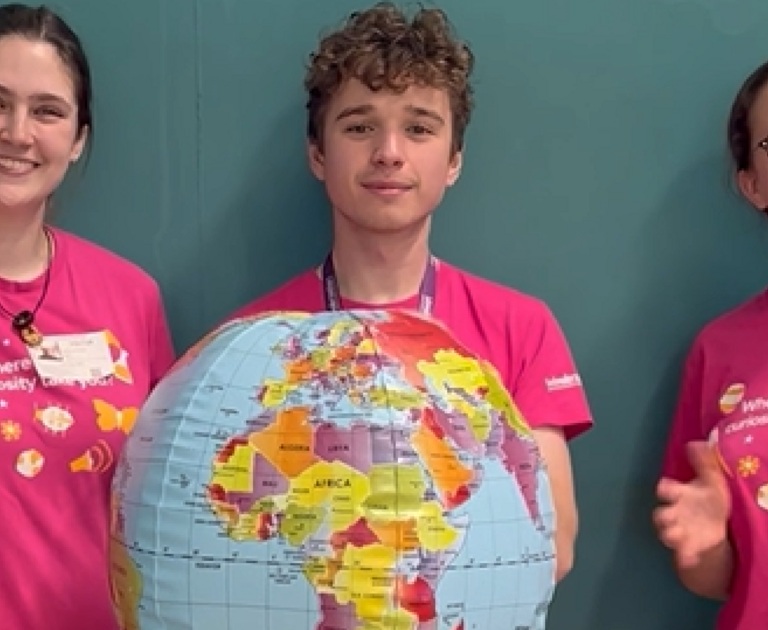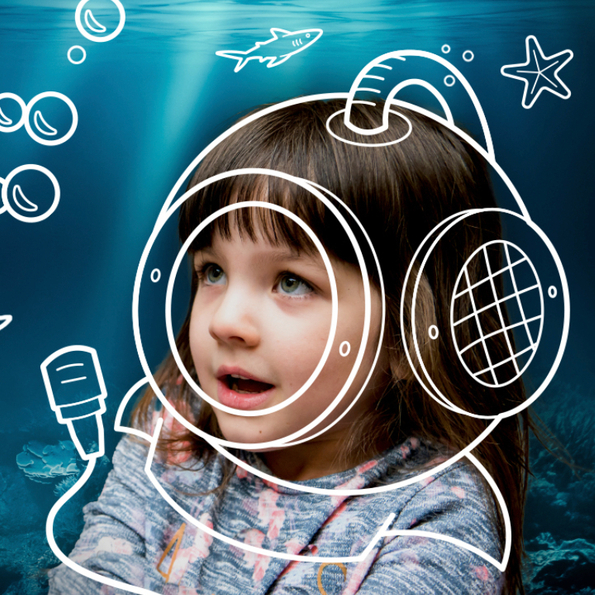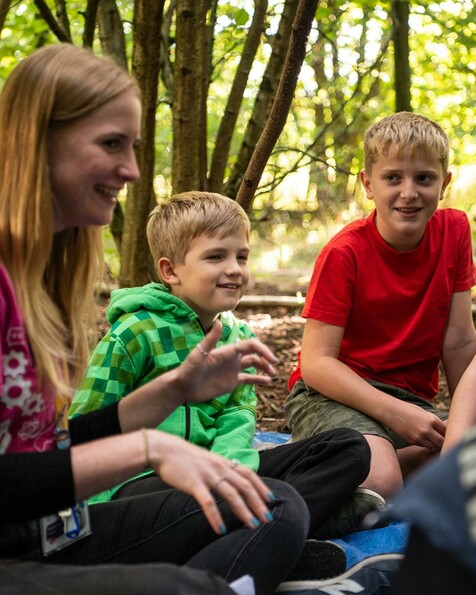As part of our commitment to deliver repeat engagement outreach activities to children in their schools, our Equity, Community Engagement and Outreach (ECO) team often visit many different parts of southern England. Here's what happened when they visited the Isle of Wight and Winnall, in Winchester, where they were on a mission to encourage children to understand the value of our planet and everything that inhabits it.
On 7th May, the team took a trip over to the Isle of Wight for the first session of the Climate Trackers programme. The programme, which over the course of two visits will help year five children develop an understanding of how satellites protect the Earth and monitor climate change, will see pupils create their own satellites out of recycled materials. On this first visit, the team ran three workshops; one testing temperatures of different materials, one coding Micro:Bits and one building rocketships from K’nex.
On 20th May, the team headed to Winnall for the first of three sessions that form the Caterpillar Champions programme. Developed in collaboration with Dr. Melanie Gibbs from UKCEH (UK Centre for Ecology and Hydrology), the programme encourages year two children to explore habitats and the lifecycle of caterpillars. The morning began with a dance where the children became ‘superpillars’ before they headed off into the school grounds, magnifying glasses in hand, on a habitat hunt. The session closed with the “Yum/Yuck Game”, an egg-hilarating relay race where the goal is to lay as many butterfly eggs as possible while avoiding unpredictable weather and other wildlife on the prowl for food.
Children in both sessions went on mini science journeys during their activities. The children on the Isle of Wight discovered that gold paper would be a good material for a satellite because it reflects heat and they were incredibly proud of their rocketship creations. Over in Winnall pupils were able to understand that caterpillars eat leaves as well as identify leaves in the schools grounds that had holes in from caterpillars eating them. Team ECO can’t wait to go back to both locations to see what more the children will discover. And we can’t wait to see where the ECO adventures will take the team next!






